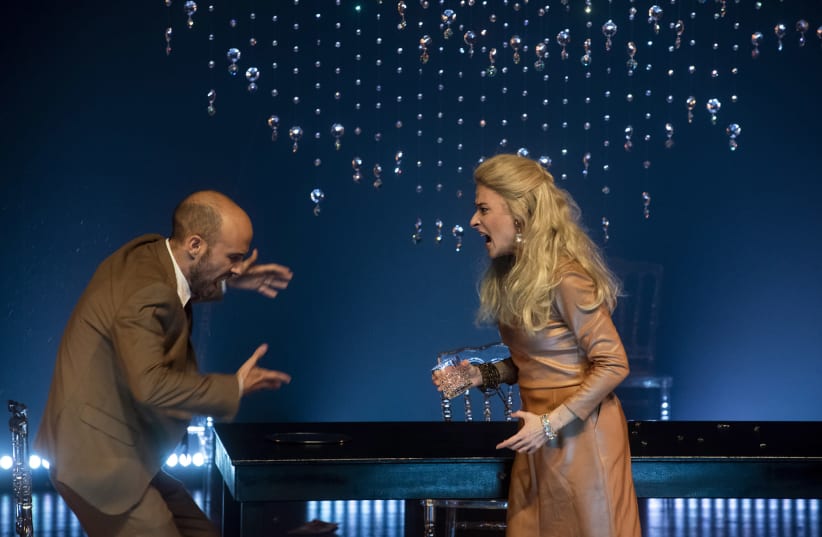Ajiashvili, who is one of the most intriguing local composers, has based her piece on “The Cut-Glass Bowl,” a short story by F. Scott Fitzgerald. The story, which spans between the early 1900s and early 1920s, takes place in a New York family home and depicts a society where success and showiness are more important than spirituality.
Evelyn Piper, a young and beautiful housewife, and her businessman husband Harold Piper are the central characters. The emptiness of the existence of the society they belong to is symbolized by a gorgeous cut-glass bowl, which stands in the center of the home. The bowl emanates light yet possesses mystical evil powers; it brings misfortune upon the family. It affects the business and ruins their relationship; their daughter becomes disabled, while the son is killed in the war. At the end, Evelyn, feeling that she and the bowl have become one, brings it down on herself in order to put an end to her meaningless life.
The cast features five singers, with two of them performing two roles each. They are accompanied by the Meitar Ensemble – a six-musician contemporary music group under the precise baton of internationally renowned Israeli maestro Yuval Zorn, who shares his time between contemporary and traditional repertoire.
Ajiashvili has translated Fitzgerald’s story into the music, which is harsher and more emotionally charged than the original narration. Writing in the contemporary idiom, she composes atonal music, but makes a point to make it singable. Known for her creativity and her passion for musical experimentation, she introduces into the ensemble additional instruments, such as a toy piano – its empty ringing sound is associated with the characters’ emptiness; crystal glasses, partly filled with water, which, being touched with a wet finger produce a mystical sound – that of the bowl – and more. The result is a rich storytelling sound field – the music obviously knows about the characters more than they do.
The dialogues between the soloists and the ensemble, when the former begins a theme, while the latter continues it, or vice versa, are captivating and reminiscent of those between the instruments in a chamber string ensemble.
The opera as an entity could be described as a work of a team of translators. Ajiashvili has translated the verbal story into the score; the music, produced by Meitar, sets the characters a-go; stage director Shirit Lee Weiss has translated the music into dynamic mise-en-scènes and laconic and far-from-obvious directorial solutions; stage and costume designer Polina Adamov turns the family dining room into a kitschy dazzling space; while lighting designer Yoav Barel hand paints every scene according to its mood with virtuosity and precision.
Bottom line – this little gem was presented only once, to standing room-only hall. What a pity.
